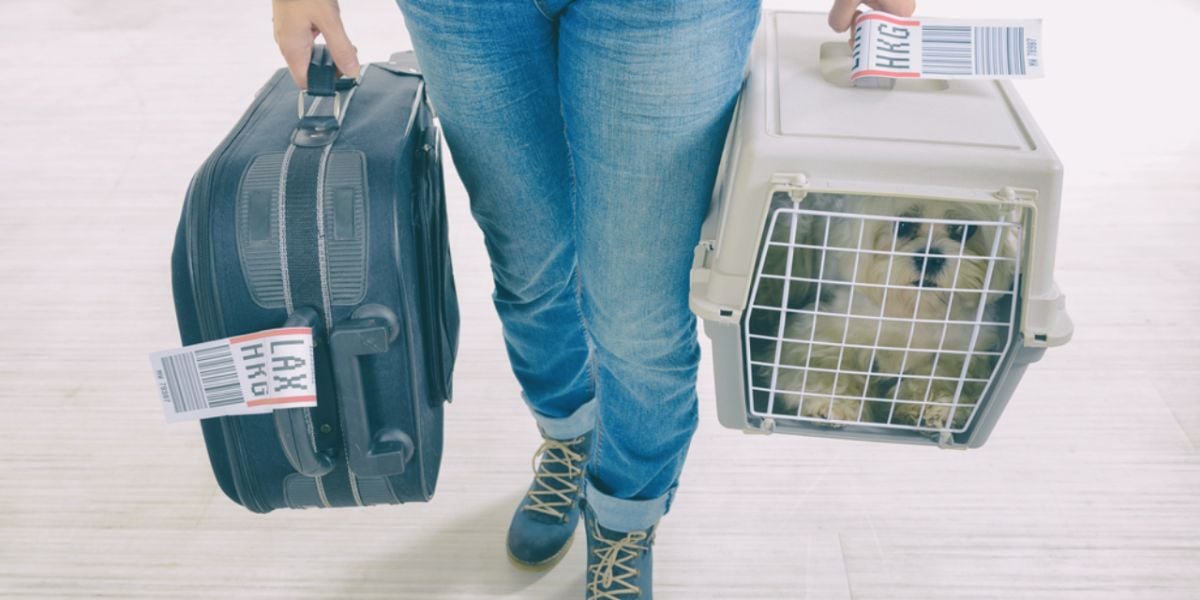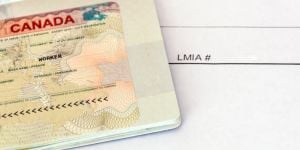
If you're getting ready for a move to Quebec and have a pet, you might be wondering about the steps to take to bring your furry friend along. Here's a guide on how to relocate with your pet.

Before bringing your pet to Quebec, it's essential to check with your airline to understand the specific conditions for transporting pets. These conditions depend on factors such as your pet's breed, weight, size, and the type of cage used for transportation. If your airline doesn't provide a dedicated pet fare, the transportation cost will be calculated similarly to excess baggage fees.
Entry requirements for pets in Quebec
Dogs and cats entering Canada don't undergo quarantine. However, for cats, it's necessary to provide proof of rabies vaccination or a veterinary certificate confirming their rabies-free status. Dogs require an updated vaccination record. For other pets like rodents, rabbits, birds, etc., requirements vary by breed. Some may need quarantine, and an import permit might be necessary. You can check your pet's import requirements through the Canadian Food Inspection Agency's (CFIA) Automated Import Reference System online. This tool helps determine if your pet must undergo CFIA inspection upon arrival in Canada, in which case, advance notice of your arrival is essential.
Ensure your pet remains fasting throughout the trip. Once at customs, the Canada Border Services Agency (CBSA) has the authority to refer any animal brought to the border for a secondary inspection by the Canadian Food Inspection Agency (CFIA). The CBSA inspection costs $37.66 CAD for the initial animal and $6.45 CAD for each additional one. If a CFIA inspection is deemed necessary by the CBSA officer, you will be accountable for the associated inspection costs.
Good to know:
Importing food for animal consumption is prohibited in Canada unless the products are from the United States.
Animals authorized in Quebec
As part of the national animal health program, the CFIA is tasked with defining import criteria for animals, including pets and animal products coming into the country. These criteria are relevant for animals relocating to Canada permanently, those in transit, and those making a temporary visit.
Good to know:
The agency reserves the right to refuse entry to any animal at the border. For a list of authorized animals, visit the CFIA website.
“Dangerous” dogs, such as pit bulls and American terriers, are prohibited in some municipalities. In others, certain obligations are imposed on owners, such as registering the dog on a public register. Find out about the legislation in force in your destination city.
Regulations to follow as a pet owner in Quebec
Once you've made Quebec your home, as a pet owner, there are several rules to follow. It's your responsibility to provide your pet with essential care and ensure that its presence doesn't impact your neighbors' quality of life. Many municipalities regulate the number of pets per dwelling. In Montreal, you can have a maximum of eight animals (excluding fish), with no more than four cats or dogs, and a maximum of three dogs. These regulations may vary from one city to another, and sterilization might be a mandatory requirement in some places.
Typically, pet owners must register their animals with the local city hall in most municipalities. In Quebec City, the fee is $35 CAD for a dog and $11 CAD for a cat. Fees can differ across cities. Additionally, you might need to obtain a permit or a tag for your pet to wear. If your pet's tag is lost or damaged, there is a replacement cost of around $10 CAD.
As a pet owner, it's important to promptly clean up your pet's droppings from both private and public roads, prevent it from roaming freely, and, most importantly, keep it on a leash in public spaces. Be aware that certain public areas may have restrictions against pets.
Regarding other animals like aquarium fish, small mammals, birds, or non-venomous reptiles (unless prohibited species in Quebec), you can keep them if your lease allows and you make the necessary arrangements for their care.
Practical information for pet owners in Quebec
If your pet is lost, if you come across a stray, or if you witness an injured or abused animal, reach out to the SPA du Québec. It's highly recommended not to abandon a pet, regardless of the circumstances leading to parting ways. Numerous Facebook groups are available for posting announcements about lost or found animals, with some groups dedicated specifically to this purpose.
The SPA du Québec rescues stray or abandoned animals and finds them a new family. Additionally, you have the option to file complaints about any domestic animal-related issues, such as excessive barking, the buildup of excrement, a neighbor's pet being in your home, or the presence of a dangerous animal in the vicinity.
If a domestic animal has injured you or you believe that an animal poses a risk to public health, call 911.
In Quebec, many rental properties, particularly those involving dogs, have restrictions on pets. When searching for a property, verify whether pets are permitted and inform the owners in advance.
Useful links:
We do our best to provide accurate and up to date information. However, if you have noticed any inaccuracies in this article, please let us know in the comments section below.








